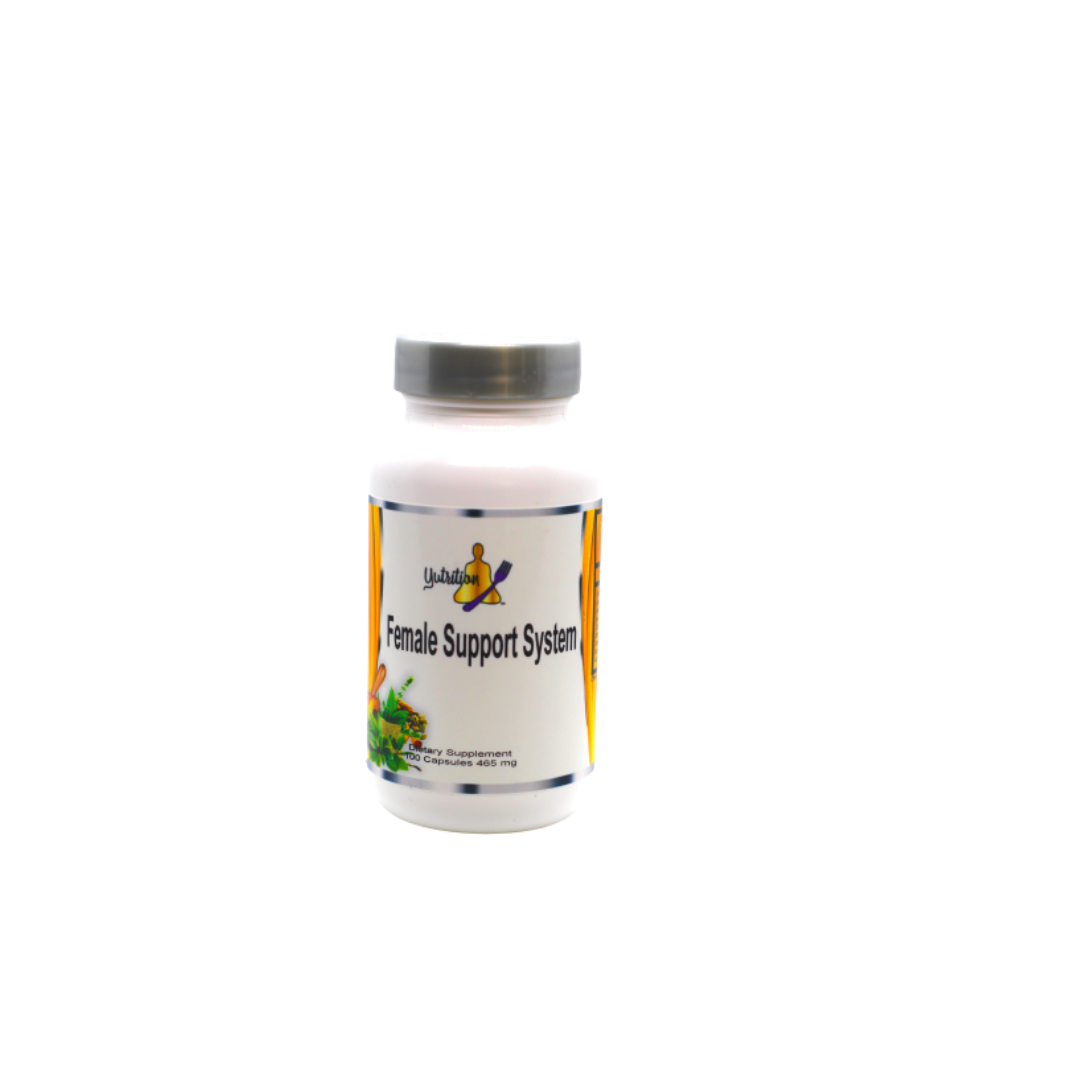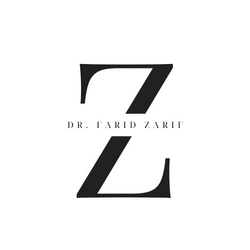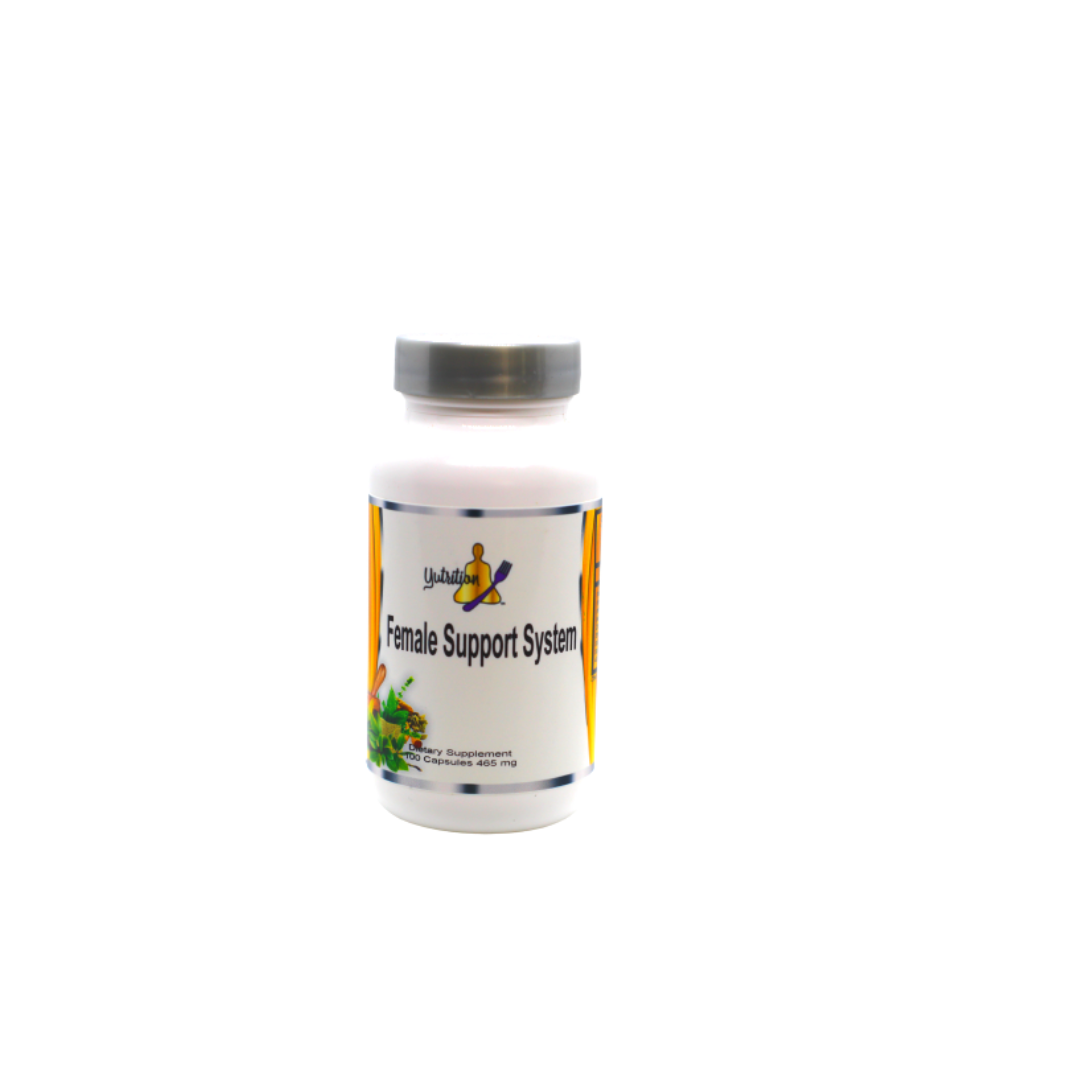Executive Life Diet Store
Female Support System
Couldn't load pickup availability
Wild Yam:
- In the 1950's, scientists discovered that the roots of wild yam contain diosgenin. Diosgenin is a phytoestrogen, or plant-based estrogen, that can be chemically converted into a hormone called progesterone. Diosgenin was used to make the first birth control pills in the 1960s.
- Traditionally Native Americans and early Americans have used wild yam for "female problems" lower stomach pains, gall bladder pains, joint pain and as an energy source.
False Unicorn Root:
- The traditional medicinal use of false unicorn root is based in traditional Native American herbalism. It was recommended for many women’s health conditions, including painful menstruation and other irregularities of menstruation. False unicorn was also used for pregnant women who dealt with morning sickness.
- Phytochemically, the steroidal saponins chamaelirin and diosgenin have been identified in false unicorn, and are postulated to exert an estrogen-modulating activity via interaction with estrogen receptor sites of the hypothalamus.
Lady's Mantle:
- The plant is rich in tannins, salicylic acid, essential oil, bitter substances and phytosterols. It also contains vitamin C and numerous minerals.
- Many of the herb’s constituents, especially the tannins and the bitter substances, are thought to have a balancing and regulating effect on the female reproductive system.
Vitex Berry:
- "Vitex has been shown to help balance of estrogen and progesterone during the menstrual cycle and may alleviate PMS symptoms." (University of Maryland Article)
- "Vitex has been shown to help re-establish normal balance of estrogen and progesterone during the menstrual cycle." (University of Maryland Article)
- "Preliminary and double-blind research has found that vitex relieves PMS symptoms." (University of Maryland Article)
The studies sited above are for informational purposes only. They do not reflect or relate to the performance or purpose of any products that contain similar materials.
The difference between a vegan and a plant-based diet
The difference between a vegan and a plant-based diet
The difference between a vegan and a plant-based diet
Is a plant-based diet the same thing as a vegan diet? Both meal plans have made headlines for their health benefits in recent years and while they are similar, there are some key differences: Vegan diets eliminate all animal products, while plant-based diets do not necessarily eliminate animal products, but focus on eating mostly plants, such as fruits, vegetables, nuts, seeds and whole grains.
What is a vegan diet?
“With a vegan diet, you eliminate all animal products, including dairy, meat, poultry, fish, eggs and honey,” says, Dr. Farid Zarif a bariatric medicine nutritionist, founder of Rhythmic Ingestion, author of "Slaves of the Tongue".
Some people choose to follow a vegan diet for ethical, environmental or health reasons. While going vegan can have health benefits, there are some pitfalls to avoid.
“Just because something is vegan doesn’t mean it’s healthy,” he says. “If you’re vegan, you can still technically eat vegan cookies, potato chips and other vegan junk food, which can be high in calories and low in nutrients. I recommend sticking to whole foods as much as possible.”
What is a plant-based diet?
Plant-based diets also emphasize eating whole foods, meaning the food has undergone little – if any – processing and is as close to its natural state as possible.
Plant-based foods include:
Whole grains (quinoa, farro, barley, oatmeal)
Plant-based oils (avocado, olive, canola)
What is the right meal plan for you?
“Regardless of what meal plan you choose, everyone’s diet should ideally consist of 50 percent vegetables,” says Dr. Zarif. “Fruit is healthy too, but I like to focus on vegetables because they have less sugar.”
When building your plate, aim for:
50 percent vegetables
25 percent whole grains
25 percent lean protein
“If you are not eating meat or other animal proteins like eggs, try beans or quinoa for plant-based protein,” he says.
Adding healthy fats – such as avocado oil when roasting veggies, a sprinkle of slivered almonds on your oatmeal or sliced avocado on your salad – will help you feel full for longer. And healthy fats have numerous other health benefits.
When to talk to your doctor about your diet
“It’s a good idea to see your primary care doctor to get a basic framework for what a healthy diet should look like for you, particularly if you have an underlying health condition or have had weight loss surgery, which can affect how your body processes nutrients,” says Dr. Zarif. “For example, if you have diabetes and want to eat healthily, be sure to eat small portions, not to exceed 2 servings”.
Also, if you are vegan, vegetarian or don’t eat many animal products, she recommends asking your doctor to check your B vitamin levels.
“B12 deficiency is common in vegans because it’s a nutrient that we need to know more about, along with its varying sources,” he explains. “If you don’t consume many animal products, talk to your doctor about taking a supplement.”
Calcium is another important nutrient that can be hard to get when you don’t eat dairy products. Dr. Zarif recommends eating and drinking calcium-fortified plant-based milk (like almond milk) or other calcium-fortified foods.
“If you’re not getting three servings of calcium-rich foods each day, ask your doctor about adding a supplement,” he says. “Try to get at least some calcium from your diet because taking too many calcium supplements can cause adverse side effects.”
Is a vegan or plant-based diet healthy?
If you eat plenty of vegetables, fruits, healthy fats and whole grains, you should still get a good chunk of your daily vitamins and minerals because plant-based foods are high in many nutrients.
“If you’re going to follow a vegan or plant-based diet, think through it carefully and plan out your meals,” says Dr. Zarif. “You don’t necessarily have to go vegan to be healthy – plant-based is a good option for people who struggle with consistency and planning. If you are going to commit to a vegan diet, make a plan and be consistent about incorporating all the healthy food groups, including plant-based protein, so you don’t miss out on nutrients.”
What this book may do for you
What this book may do for you
Help you to change the narrative of outdate and ineffective lifestyles.
Shipping
Shipping
Share

Subscribe to our emails
Be the first to know about new collections and exclusive offers.

